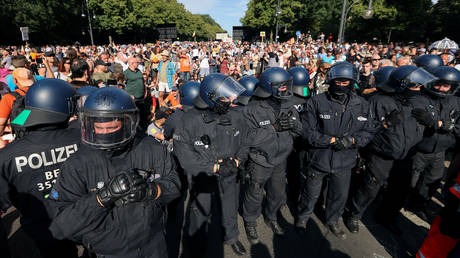
More than 4,000 coronavirus cases have been recorded in Germany in a 24-hour period, the Robert Koch Institute (RKI) said, as Berlin adds more European states to the list of Covid-19 risk areas.
On Thursday, the country’s infectious disease agency reported 4,058 new coronavirus infections, compared to 2,828 the previous day. It’s the highest daily total for Germany since the height of the pandemic in late March and early April. At that time, there were over 6,000 new daily infections.
However, Health Minister Jens Spahn said on Thursday that Germany “won’t get to the situation we had in March or April.” Few cases came from shops, hairdressers and public transport, he said, adding the main problems were social gatherings, while schools and nurseries were coping relatively well.
The capital, Berlin, and the financial hub of Frankfurt have imposed a curfew on evening entertainment to curb the spread of new infections.
The surge in cases comes a day after most German states decided to impose an accommodation ban on domestic travelers coming from the country’s coronavirus hotspots unless they test negative for the virus.
Spahn, who described the rise in Covid-19 infections in Germany as worrying, also said that the worsening situation in Europe posed a risk for the country. Travelers returning from Georgia, Jordan, Romania and Tunisia will now remain under quarantine until they have a negative coronavirus test.
Some regions of the Netherlands as well as Bulgaria, Croatia, Hungary, Lithuania, Slovakia and Slovenia have also been added to the list of coronavirus risk areas.
Think your friends would be interested? Share this story!




